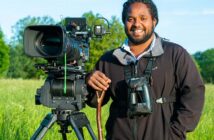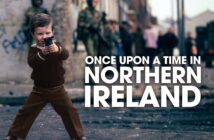A new Open University/BBC co-production programme this week shows the work of artists, commissioned by His Majesty The King to produce portraits of people from the Windrush generation.
The works of art commemorate the 75th anniversary of the arrival of the HMT Empire Windrush, a ship that docked in Tilbury on 22 June 1948, bringing passengers from the Caribbean and elsewhere. The programme will be broadcast on the same date on Thursday at 7.45pm on BBC2.
It contains the revealing insights of ten individuals who migrated to this country from the Caribbean, some now in their 90s, who talk about their lives and sit for artists.
The portraits, created by both national and international artists, will become part of the Royal Collection.

His Majesty The King commissioned the artworks that will appear in the Royal Collection
The Commonwealth citizens who migrated here from Caribbean countries between 1948 and 1971 are known as the Windrush generation.
Britain encouraged them to come here to help fill gaps in the labour market and build the country in a post-war era.
They contributed massively and brought an explosion of diversity and creativity in all facets of life and helped transform Britain into a multicultural society.
As the artists work, the film crew capture their creative progress and conversations with the portrait sitters. In a set of intimate interviews, we hear about the contrast between the optimism that Caribbean people arrived with and the harsh realities of the climate they encountered: social, economic and political – as well as the weather.
The sitters tell of how they put down roots and how they, and succeeding generations, made this country their home, becoming an essential part of contemporary Britain.
Leon Wainwright, Professor of Art History at the OU, a consultant on the programme, said:
“We watch ten artworks being made through portrait sitters and artists who come together and get to know one another, and the results are really wonderful.”
Colleague, Dr Lystra Hagley-Dickinson, a criminologist at the OU, also a consultant for the programme, said:
“I found my involvement evoked both an emotional and scientific curiosity in relation to the Caribbean involvement and creation of a Caribbean British culture.
“Emotional, because I could hear my family relations’ narrative echoed by the sitters but I could also hear myself in the painters who in so many ways are representative of my cohort of the next generation and beyond.”
Leon continued:
“The programme will allow us to reflect on an expanding range of critical issues: portraiture, royal patronage, the contested histories of empire and colonialism, public remembrance, biography.
“The artists respond critically to the unbearable weight of Western art in which images of Black people have tended to perpetuate stereotypes and marginalisation.”
This programme was commissioned by Broadcast and Partnerships and is supported by the Faculty of Arts and Social Sciences, with particular relevance to BA (Honours) Criminology, BA (Honours) Arts & Humanities, BA (Honours) Art History and Visual Cultures and Art and its Global Histories.
- Commissioned by Dr Caroline Ogilvie, Head of Broadcast & Partnerships
- Academic Consultants – Professor Leon Wainwright and Dr Lystra Hagley-Dickinson
- Media Fellows – Dr Joanna Paul and Dr Alison Penn
- Broadcast Project Manager – Jo Weeks
- Digital Content Producer – Andrew Hudson
Supporting Online content:
Visit our Broadcast & Partnerships site OU Connect where you can find extensive resources and information on topics related to this programme. We explore ‘What can Windrush experiences tell us about racism?’ in an exclusive extended interview with Professor Sir Geoff Palmer OBE. We also bring you some insights from Linda Haye OBE & Carmen Munroe OBE in our exclusive interview ‘Becoming a role model’.
Picture credit: BBC Studios



